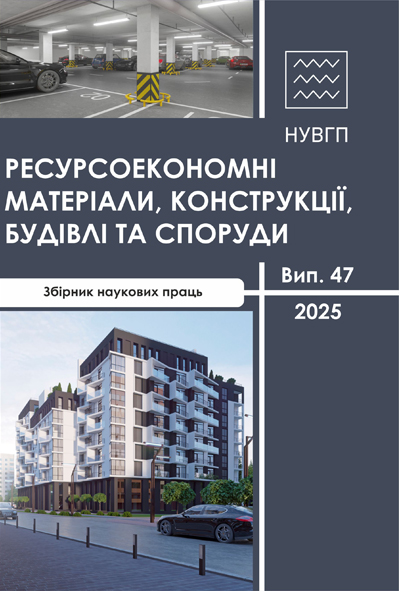COMPOSITE CEMENT BINDERS USING SYNTHESIZED ALUMOSILICATES
DOI:
https://doi.org/10.31713/budres.v0i47.28Abstract
The article presents a literature review, the results of which show that materials obtained on the basis of alkaline activated binders (geopolymers) have low permeability and high pH of the pore fluid, which provides them with good resistance to chloride corrosion of reinforcing steel. The good resistance of geopolymers to aggressive environments and temperature changes makes these materials suitable for operation in adverse conditions. Thus, according to literature data, geopolymers are of interest as matrices for the immobilization of toxic and radioactive waste. Compared to Portland cement, which is currently used to solidify low and medium-level nuclear waste, geopolymers provide the resulting materials with greater stability. Technological aspects of the preparation of concretes based on alkaline activated binders and their construction and technical properties are basically similar to the technology and properties of concretes based on PC, although in the synthesis of geopolymer concretes, as a rule, thermal activation is always required. Temperature significantly accelerates the process of dissolving the initial aluminosilicate framework and thus has an important effect on the hardening of geopolymer compositions, especially in the initial reaction period. Fly ash at normal temperature reacts very slowly and even after a month of hardening under normal conditions gives insignificant strength. However, keeping a freshly prepared product at 70-90 ° C for several hours to 1 day allows you to achieve almost the final strength, which is up to 60-70 MPa (according to some data, the strength of geopolymers can reach 100 MPa and more). Among the reasons why geopolymers have not yet been widely used is their insufficient study (mostly due to the heterogeneous composition of the raw materials).

